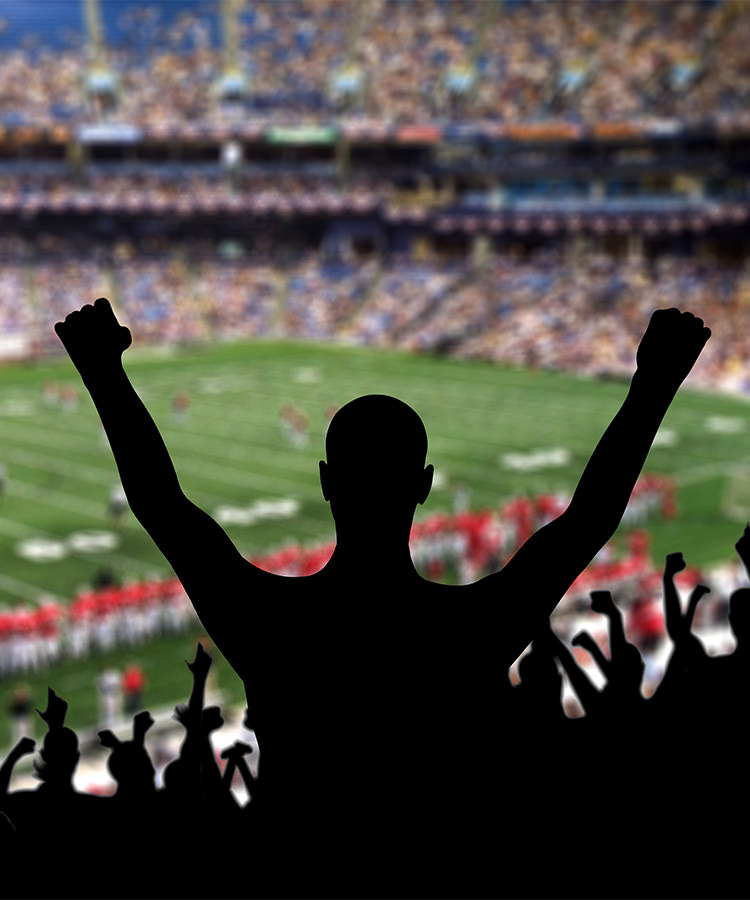An increasing number of college football fans will be able to buy beer in stadiums this year. Boston College and The Citadel joined the collection of more than 40 colleges and universities that allow in-stadium beer sales. Whether you think beer is fun or the devil, we should celebrate these forward-thinking institutions. This decision could curb collegiate binge drinking.
On its face, the claim sounds counterintuitive. You’d think that more alcohol plus more access would mean more drinking. And colleges are hardly promoting this as a prohibitive effort; according to the Boston Globe, Boston College’s decision to sell beer was to “enhance the game-day experience for fans.”
But a possible side effect of having beer available for purchase is more responsible drinking. If college students know they can buy alcohol in the stadium, they’re less likely to shotgun that last beer (or three) before walking in. The payoff for downing liquor right before the game and smuggling in shots is much lower if people aren’t worried about losing their buzz by halftime.
In the football-obsessed South, where it’s brutally hot for the first couple games of the season, a line of shots before entering the stadium is is the best way to get dehydrated, pass out, and miss the game entirely. It happens more often than you think, if my four years of standing in the fraternity section of Auburn University’s stadium is any indication.
Additionally, having beer available for purchase would likely decrease underage consumption during football games. It’s easier for someone underage to obtain outside of a controlled sales environment than within one. Stadiums can control who buys what and how much far easier than they can monitor who pulls from a flask of whiskey sneaked into the stands.
Still, haters will to continue to hate while willfully ignoring the problems that current drinking policies cannot alleviate. Carol Christ, the UC Berkeley chancellor, called the notion of selling beer at Cal games “such a stupid question,” mere days before Boston College’s new policy was announced.
The pros and cons are already established. The NCAA released a statement last year stating that “making alcohol available in the stadium prevents incidents of binge drinking before events and discourages people from attempting to bring outside alcohol into the venue.”
It’s hardly an argument anymore. Why haven’t more schools embraced college football beer sales?
Change is hard for craft beer drinkers
People who love craft beer claim to share certain discerning sensibilities. They say they like the new, the interesting, the unique.
In reality, it’s all IPA, all day. If a brewery tries to buck the trend it’s hard for them to stay in business.
A recent feature on Old Nation Brewing Co. in Draft proves this point. The brewery was winning award after award for their altbiers and hefeweizens; but after 18 months, they still struggled economically. Then they started a series of big, trendy New England-style IPAs and the money started pouring in.
They’re not alone. When VinePair asked 13 brewers what the safest beer to make is from a business perspective, the majority answered with three letters: IPA. Because as much as craft beer is about getting away from bland macro beers that all taste the same, change is hard. Making and drinking IPAs and IPA variants that all taste close to the same is easy.
Lagunitas made a cannabis beer
Beer and weed go together, so it’s only fitting that Lagunitas made SuperCritical, a beer made with marijuana terpenes. The only downside is it’s only available in California … for now.
